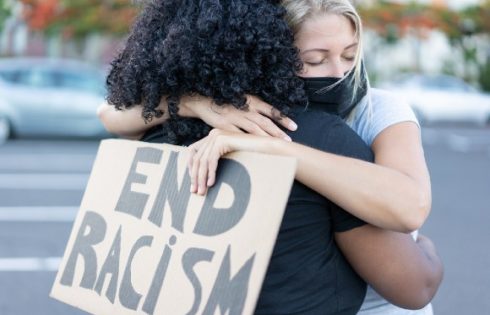
In a remarkable interview, a Yale professor of psychiatry says President Trump should be “contained” against his will for an “emergency” evaluation of his mental state.
According to Vox.com reporter Eliza Barclay, Professor Bandy Lee is “leading the call” by a group of psychiatrists for just that assessment. Lee has “devoted her 20-year career to studying, predicting, and preventing violence,” Barclay writes.
The professor allegedly briefed a dozen members of Congress on the president’s mental state, and along with professors from Harvard and Columbia released a statement noting Mr. Trump is “further unraveling.”
The special counsel’s indictments started a crisis — a mental health crisis in a president who is not able to cope well with ordinary stresses such as basic criticism or unflattering news.
His trip to Asia brought a lot of ceremonial deference and customs of flattery that kept him doing better for a while. But that indicated a greater danger to us — that someone [was] that susceptible to fawning pointed to instability that would make him more volatile when he returned. And that’s exactly what happened.
When he returned and faced the progress of the special counsel’s investigation, he became more paranoid, returning to conspiracy theories that he had let go of for a while. He seemed to further lose his grip on reality by denying his own voice on the Access Hollywood tapes.
Also, the sheer frequency of his tweets seemed to reflect the frantic state of mind he was entering, and his retweeting some violent anti-Muslim videos showed a concerning attraction to violence. And then there were the belligerent nuclear threats this week.
Lee contends she is not breaking the so-called “Goldwater Rule” — the American Psychiatric Association’s decree that “members never publicly discuss the mental health of a public figure”:
“[W]e are not diagnosing him […] We are mainly concerned that an emergency evaluation be done,” she says.
In response to Barclay’s question about why she should be taken seriously, Lee says
We are assessing dangerousness, not making a diagnosis. The two are quite separate: Assessing dangerousness is making a judgment about the situation, not the person. The same person may not be dangerous in a different situation, for example. And it is his threat to public health, not his personal affairs, that is our concern.
A diagnosis, on the other hand, is a personal affair that does not change with situation, and you require all relevant information — including, I believe, a personal interview. Most people who are dangerous do not have a diagnosable mental illness, and most people with mental illness are more likely to be victims than perpetrators.
Also, once you declare danger, you are calling first for containment and removal of weapons from the person and, second, for a full evaluation — which may then yield diagnoses. Until that happens, physicians and mental health professionals are expected to err on the side of safety and can be held legally liable if they fail to act. So we’re merely calling for an urgent evaluation so that we may have definitive answers.
Lee asserts that those in her field “not only the legal authority, but often the legal obligation, to contain someone even against their will when it’s an emergency” if he will not voluntarily submit.
Lawyer groups have volunteered to file the necessary papers to get the (White House) security staff to cooperate, she says, but notes “we have declined, since this will really look like a coup, and while we are trying to prevent violence, we don’t wish to incite it through, say, an insurrection.”
MORE: UCLA study analyzes 6,000 Trump tweets, ‘proves’ he’s a bigot
MORE: Profs: Trump’s pro-Christmas rhetoric connected to white nationalism
IMAGE: YouTube
Like The College Fix on Facebook / Follow us on Twitter





Please join the conversation about our stories on Facebook, Twitter, Instagram, Reddit, MeWe, Rumble, Gab, Minds and Gettr.